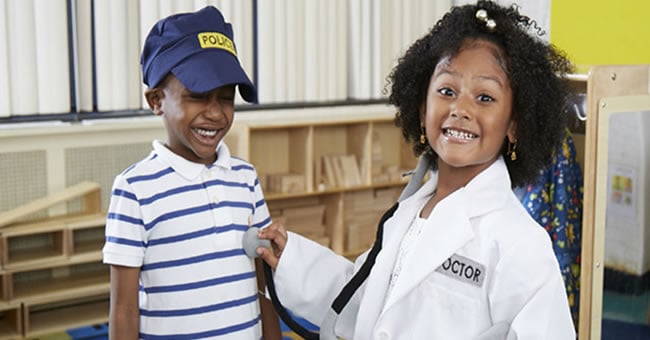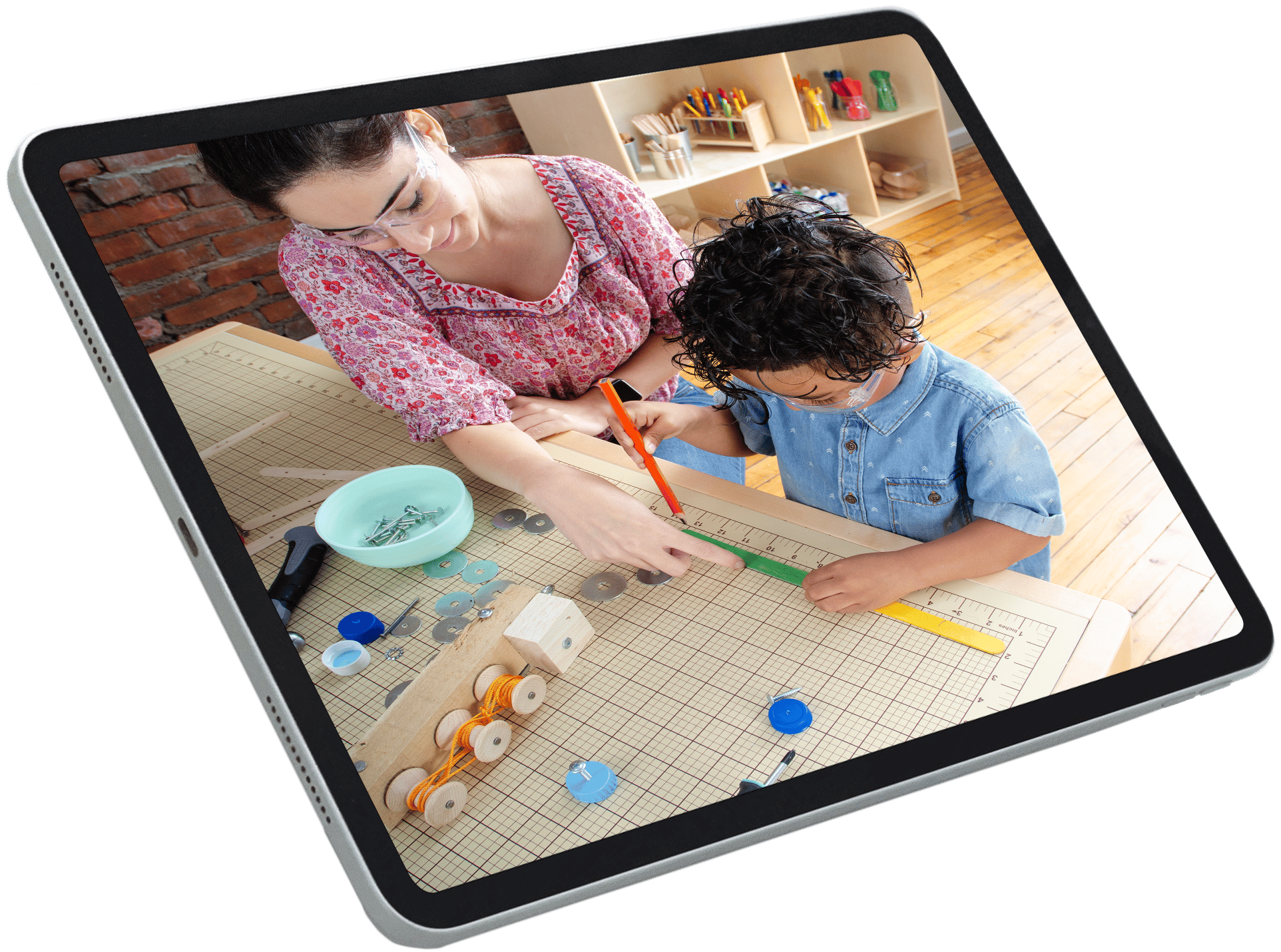 Collaborative play is a type of play that involves taking turns, sharing, following rules, negotiating, and compromising. Children who engage in collaborative play work together on projects to reach a common goal.
Collaborative play is a type of play that involves taking turns, sharing, following rules, negotiating, and compromising. Children who engage in collaborative play work together on projects to reach a common goal.
Check out these collaborative play examples to use in your preschool classroom!
Art Projects
Collaborative art projects are an engaging tool for encouraging the children in your classroom to work together. One collaborative art project to consider is a Finger Paint Art Mural. The children can make their marks and watch the masterpiece come to life.
Finger Paint Art Mural
Materials:
- Kraft Paper
- Finger Paint
- Tape
Directions
- Tape a long sheet of kraft paper down to the floor.
- Encourage the children to make a masterpiece on the paper with finger paint.
- Put the handmade mural on display in the classroom when it is completely dry.
Painting A Branch
A second collaborative art project to try is painting a branch. The children in your classroom will love working together to make a simple branch an abstract work of art.
Materials:
- A Tree Branch
- Fluorescent Tempera Paint (Multiple Colors)
- Paint Pots
- Paint Brushes
- Glue
- Pom–Poms
- Kraft Paper
Directions
- Cover a table with kraft paper.
- Fill the paint pots with different colors of tempera paint.
- Have the children paint the branch on all sides. (Remind the children to paint only the branch and to share the paints with their friends.)
- Encourage the children to create more texture by gluing pom-poms onto the branch.
- Display the new and improved branch in your preschool classroom.
Games
Games are a great way to promote collaborative play in early childhood education! Try these three with the children in your care:
- Solve Puzzles: Consider using themed puzzles in your classroom. For example, group your children in pairs, assign each pair a different food puzzle, and encourage them to work together to solve their assigned food. This activity could also work for animal puzzles and more found in the Puzzles & Games section of our website.
- Stack Things Up: Using stacking games such as Jenga is another great option for promoting collaborative play. Stacking games typically have options for two or more players and are centered on cooperation. With games such as this, children will learn to work together through play.
- Play Ball: A third suggestion for encouraging collaborative play in your classroom is separating the children into pairs and having them roll a ball back and forth to each other. This activity will help build their gross motor skills while also promoting sharing and working together.
Music
Collaboratively creating music is another way to get children in tune with each other. A classroom rhythm set is perfect for preschool musicians. Assign each child an instrument and encourage the class to make music together. Switch up the instrument assignments periodically so that each child can experiment with several different instruments. The children will love exploring new musical sounds and practicing teamwork.
Building
Building together is also considered collaborative play. Working together to build the perfect tower requires negotiation and teamwork. The children in your classroom can build with LEGO® bricks or blocks. You can encourage them to build the tallest tower, the longest tower, etc. so that they have a common goal to work towards. The children in your classroom will enjoy building a variety of different structures together.
Dramatic Play
A final idea for promoting collaborative play is encouraging dramatic play in small groups or pairs, such as making meals together in a play kitchen or play house. When the children in your classroom participate in these dramatic play activities, encourage them to take turns with different roles. These fun activities will foster teamwork and negotiation and help children learn to compromise and share.
There are many benefits of collaborative play, and using the above ideas to encourage collaborative play in your preschool classroom will help the children in your care learn valuable life skills.
